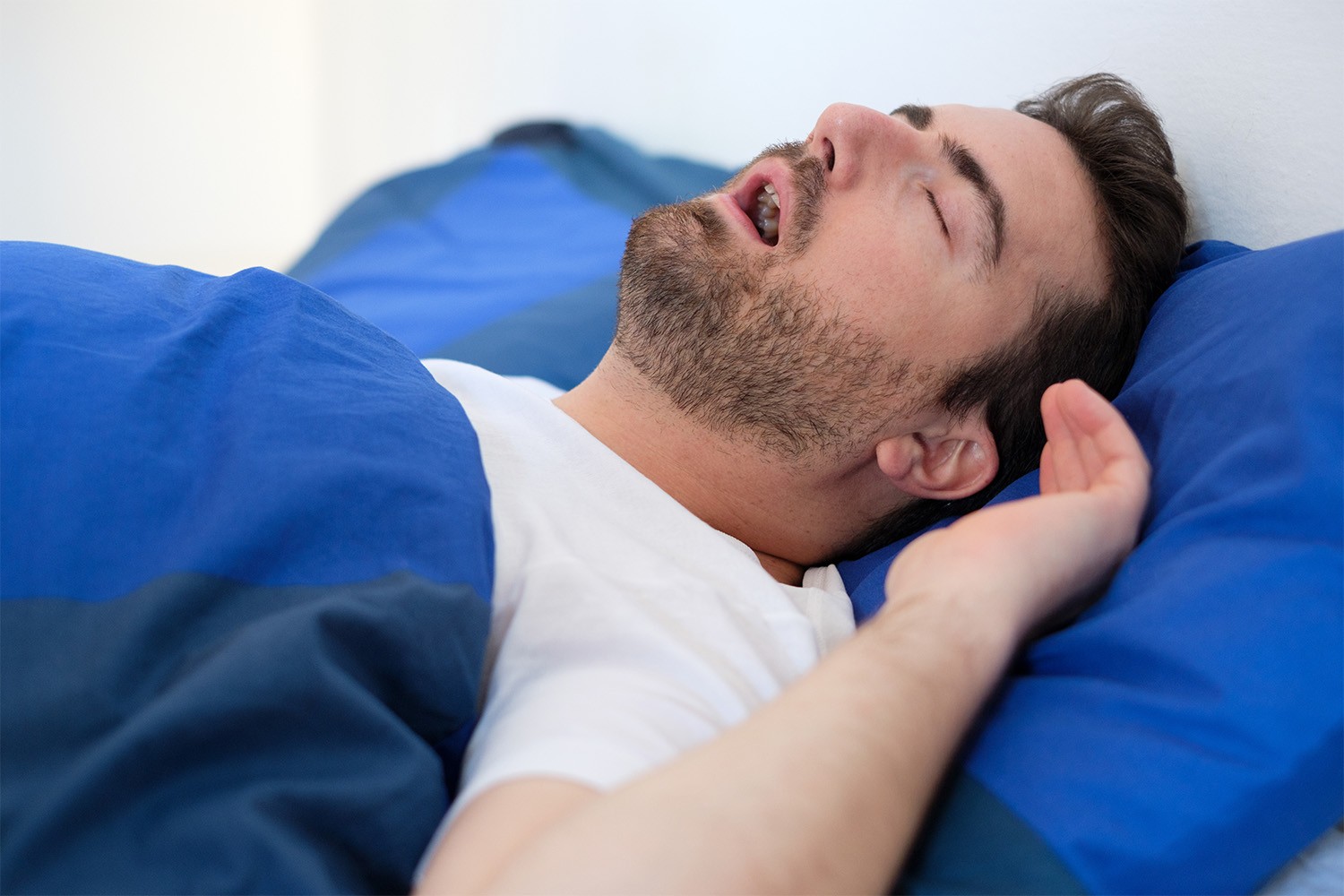
Millions of Veterans receive disability benefits for traumatic brain injuries (TBIs) and sleep apnea. However, some Veterans develop sleep apnea symptoms directly caused or aggravated by their TBIs. If this is the case for you, you might wonder whether your sleep apnea is secondary to your TBI or vice versa.
Let’s break down how the VA rates sleep apnea benefits, how they relate to TBI benefits, and how both benefits ratings can combine for your total benefits award.
Sleep apnea is a medical condition characterized by difficulty breathing while asleep. A Veteran with sleep apnea regularly awakens while sleeping because their airway is obstructed by their tongue or soft palate tissue or their brain fails to send the correct signals to their lungs and nervous system to continue breathing while they are asleep.
Sleep apnea comes in three types:
Left unchecked, sleep apnea can lead to several negative and long-term symptoms, including but not limited to:
Veterans can develop sleep apnea for any number of reasons. For example, they may develop sleep apnea as a result of PTSD, or they may develop sleep apnea after experiencing a TBI.
The VA provides disability benefits to Veterans who receive a service connection for their sleep apnea symptoms. These ratings are awarded per 38 CFR 4.97-13 Diagnostic Code 6847 under the following percentages:
A TBI is a traumatic brain injury. It includes any damage to the brain that results in noticeable symptoms, which can affect a Veteran’s day-to-day life, personality, and more.
TBIs can lead to a wide range of different physical and mental health symptoms, including but not limited to:
Although sleep apnea sounds very distinct from TBIs, the two conditions are sometimes more related than you may think. Specifically, central sleep apnea — the type of sleep apnea that occurs when the brain doesn’t send the right signals to the nervous system — could be directly caused by a traumatic brain injury, like a concussion or other head injury.
For example, suppose a Veteran who suffers a TBI during their military service. They return home and discover that they now have sleep apnea. Upon examination of their medical records, they discover that they did not showcase any symptoms of central sleep apnea until after they suffered from the original TBI.
That’s because the TBI could have caused some neurological change in the Veteran’s brain, which led to the development of central sleep apnea. So, while sleep apnea is sometimes caused by traumatic brain injuries, this is not always the case.
For example, obstructive sleep apnea is not typically caused or related to a traumatic brain injury. Veterans who wish to prove a connection between their sleep apnea and a service-related TBI must first receive an accurate sleep apnea diagnosis from a licensed and practicing medical professional.
Sleep apnea isn’t the only possible side effect of a traumatic brain injury. Other secondary conditions could develop due to brain damage, such as:
It’s possible that you learn that you have developed or aggravated multiple secondary conditions due to one injury or incident after sustaining one TBI. This does not mean your benefits are capped.
Rather, you must get an official opinion from a licensed medical practitioner to see your benefits increase. A medical practitioner can provide the necessary proof of a medical nexus between your service-connected injury and your current mental health or physical problems.
It is possible for you to receive a secondary service connection for your sleep apnea symptoms if you can prove that they are related to or caused by a service-related traumatic brain injury. If successful, you could receive a new disability rating for your secondary sleep apnea, which will be added to your primary disability rating for a new, combined disability rating.
However, secondary disability ratings are not added to your current disability rating in the way you may think. Say that you have a current disability rating of 50% for a traumatic brain injury suffered during your active duty military service. You then apply for a secondary service connection for your sleep apnea symptoms.
You receive a secondary disability benefits rating for your sleep apnea of 30%. The 30% isn’t added to the 50% you already have. Instead, it’s 30% of the current 50%, which is 15%. You add 15% and 50% to get a new combined disability rating of 65%.
Of course, proving that your sleep apnea is related to your traumatic brain injury means:
This requires you to gather doctor’s notes, personal journal entries, and other evidence to support your claim. Knowledgeable Veterans law attorneys can help you put together an airtight application for further disability benefits from the VA.
Indeed, legal professionals can be invaluable when trying to prove a connection between your sleep apnea and a service-related TBI or other injury. They can:
Perhaps most importantly, the right legal team can provide sound legal counsel throughout your benefits application process. You’ve already served your country honorably. Let us serve you and get you the benefits you deserve ASAP.
If you have sleep apnea symptoms and a traumatic brain injury, those symptoms could indeed be caused or aggravated by the TBI. If this is the case, you might qualify for a secondary service connection for your sleep apnea and receive a higher combined disability rating as a result.
To make sure this happens quickly, contact Berry Law today. As experienced Veterans law attorneys, we’re well-equipped and ready to assist with your next application for further benefits. We can also help you with the appeals process if your initial claim is overturned, plus make sure that you have the right evidence to secure a favorable ruling.
Contact us today for a free case evaluation and consultation.
Sources:
Our monthly newsletter features about important and up-to-date veterans' law news, keeping you informed about the changes that matter.